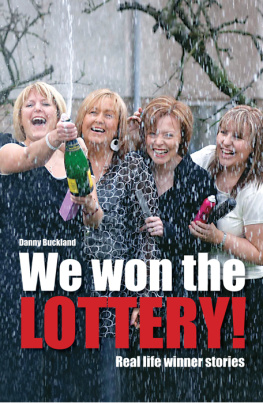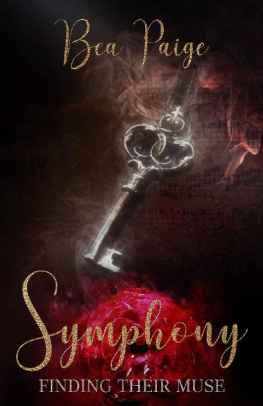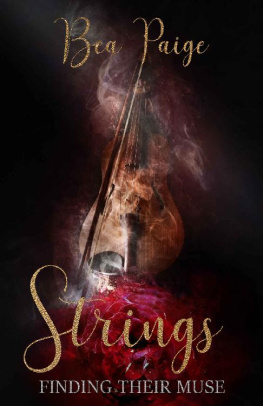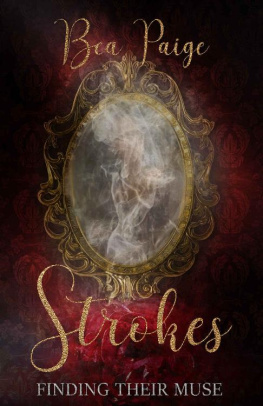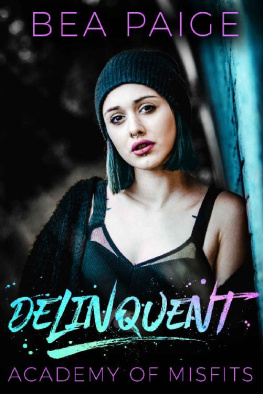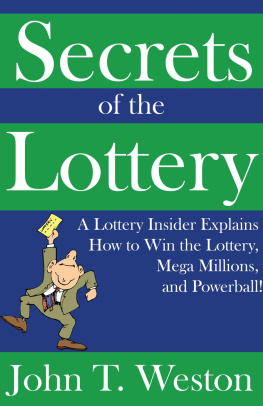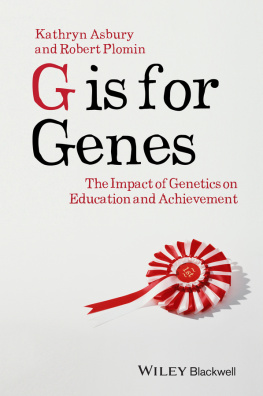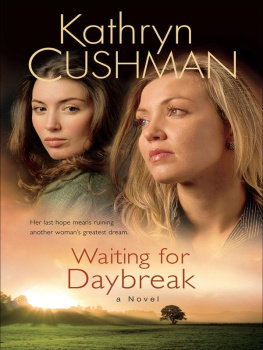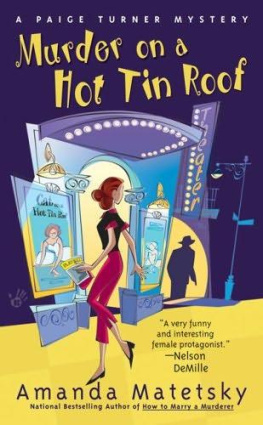Kathryn Paige Harden - The Genetic Lottery
Here you can read online Kathryn Paige Harden - The Genetic Lottery full text of the book (entire story) in english for free. Download pdf and epub, get meaning, cover and reviews about this ebook. year: 2021, publisher: Princeton University Press, genre: Home and family. Description of the work, (preface) as well as reviews are available. Best literature library LitArk.com created for fans of good reading and offers a wide selection of genres:
Romance novel
Science fiction
Adventure
Detective
Science
History
Home and family
Prose
Art
Politics
Computer
Non-fiction
Religion
Business
Children
Humor
Choose a favorite category and find really read worthwhile books. Enjoy immersion in the world of imagination, feel the emotions of the characters or learn something new for yourself, make an fascinating discovery.

- Book:The Genetic Lottery
- Author:
- Publisher:Princeton University Press
- Genre:
- Year:2021
- Rating:3 / 5
- Favourites:Add to favourites
- Your mark:
- 60
- 1
- 2
- 3
- 4
- 5
The Genetic Lottery: summary, description and annotation
We offer to read an annotation, description, summary or preface (depends on what the author of the book "The Genetic Lottery" wrote himself). If you haven't found the necessary information about the book — write in the comments, we will try to find it.
The Genetic Lottery — read online for free the complete book (whole text) full work
Below is the text of the book, divided by pages. System saving the place of the last page read, allows you to conveniently read the book "The Genetic Lottery" online for free, without having to search again every time where you left off. Put a bookmark, and you can go to the page where you finished reading at any time.
Font size:
Interval:
Bookmark:
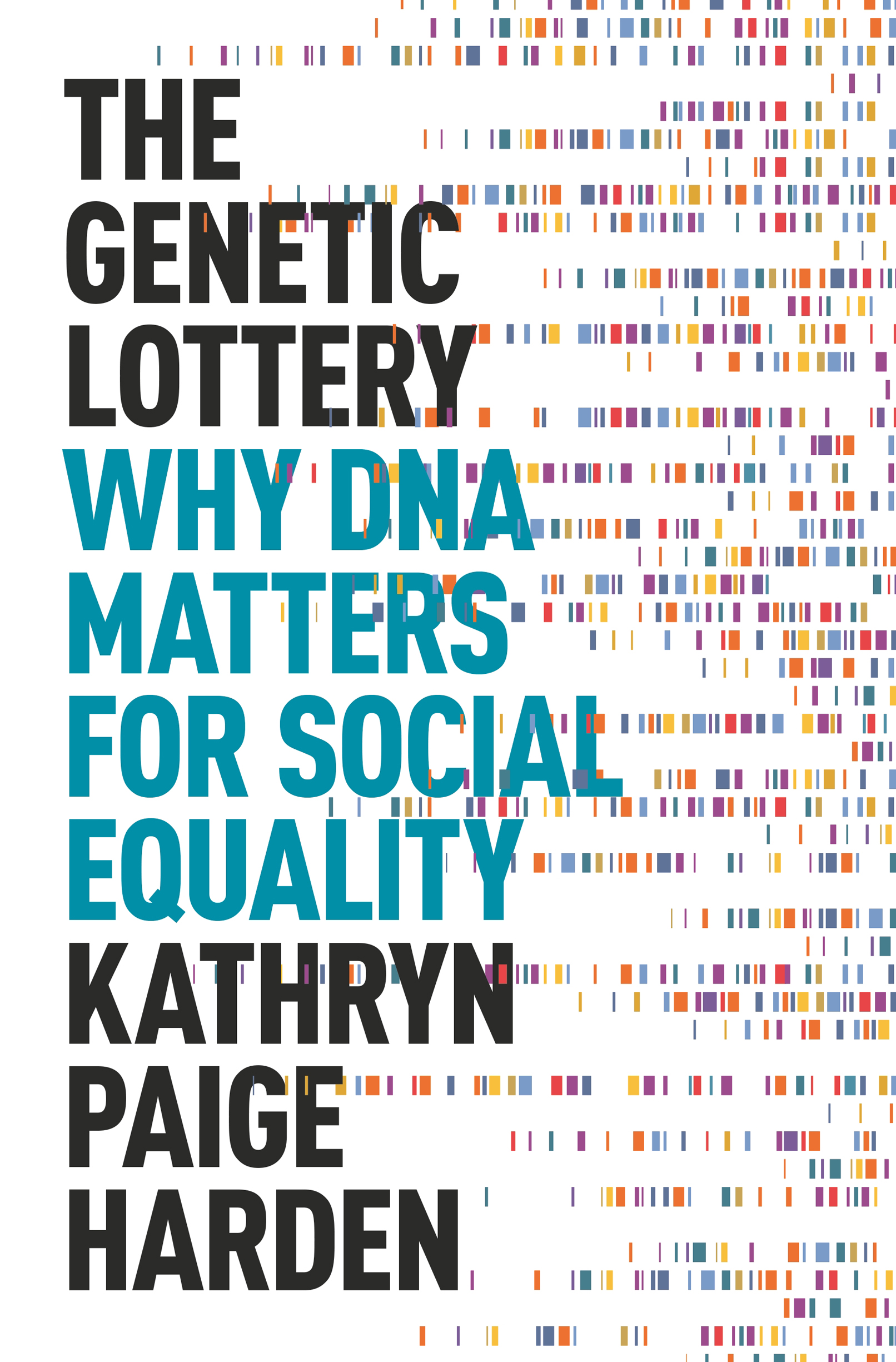
THE GENETIC LOTTERY
The Genetic Lottery
Why DNA Matters for Social Equality
Kathryn Paige Harden
PRINCETON UNIVERSITY PRESS
PRINCETON AND OXFORD
Copyright 2021 by Princeton University Press
Princeton University Press is committed to the protection of copyright and the intellectual property our authors entrust to us. Copyright promotes the progress and integrity of knowledge. Thank you for supporting free speech and the global exchange of ideas by purchasing an authorized edition of this book. If you wish to reproduce or distribute any part of it in any form, please obtain permission.
Requests for permission to reproduce material from this work should be sent to
Published by Princeton University Press
41 William Street, Princeton, New Jersey 08540
6 Oxford Street, Woodstock, Oxfordshire OX20 1TR
press.princeton.edu
All Rights Reserved
Library of Congress Cataloging-in-Publication Data
Names: Harden, Kathryn Paige, author.
Title: The genetic lottery : why DNA matters for social equality / Kathryn Paige Harden.
Description: Princeton : Princeton University Press, [2021] | Includes bibliographical references and index.
Identifiers: LCCN 2021012198 (print) | LCCN 2021012199 (ebook) | ISBN 9780691190808 (hardback) | ISBN 9780691226705 (ebook)
Subjects: LCSH: GeneticsSocial aspects. | BISAC: SCIENCE / Life Sciences / Genetics & Genomics | POLITICAL SCIENCE / Public Policy / Social Policy
Classification: LCC QH438.7 .H39 2021 (print) | LCC QH438.7 (ebook) | DDC 304.5dc23
LC record available at https://lccn.loc.gov/2021012198
LC ebook record available at https://lccn.loc.gov/2021012199
Version 1.0
British Library Cataloging-in-Publication Data is available
Editorial: Alison Kalett, Hallie Schaeffer
Production Editorial: Terri OPrey
Jacket/Cover Design: Karl Spurzem
Production: Danielle Amatucci
Publicity: Sara Henning-Stout, Kate Farquhar-Thomson
Copyeditor: Annie Gottlieb
Jacket art: Shutterstock
For Jonah and Rowan, my fortune
I used to believe that luck was a thing outside me, a thing that governed only what did and didnt happen to me. Now I think I was wrong. I think my luck was built into me, the keystone that cohered my bones, the golden thread that stitched together the secret tapestries of my DNA.
TANA FRENCH, THE WITCH ELM
In the summer before my son started kindergarten, my mother, suspicious of the Montessori approach I had taken to his preschool education, offered to help him get ready for what she calls real school (the kind with desks). I was fairly confident that his transition to kindergarten would go fine, but I nevertheless seized my chance to go on real vacation (the kind without small children). Off my children went to spend two weeks with their grandmother, while I spent two weeks on a beach.
My mother used to be a schoolteacher. A speech pathologist by training, she worked in a semi-rural school district in northern Mississippi, where her students often had serious learning disabilities and were always poor. Now that shes retired, the sunroom in her house in Memphis is decorated with posters scavenged from her old classroom: the ABCs, the US presidents, the worlds continents, the Pledge of Allegiance. When I returned from vacation, my children could proudly recite: I pledge allegiance to the Flag of the United States of America, and to the Republic for which it stands, one Nation under God, indivisible, with liberty and justice for all.
On the posters laminated surface, my mother had used a purple marker to annotate the text of the Pledge of Allegiance with more child-friendly words. Above Republic, she wrote country. Above liberty, she wrote freedom. Above justice, she wrote, being fair.
Being fair works admirably well as a kindergarten-friendly definition of justice. As any parent who has seen siblings squabble over a toy can attest, children have a keen sense of fairness and unfairness. If tasked with dividing up some colorful erasers to reward other children for cleaning their rooms, elementary school children will throw away an extra eraser rather than give one child an unequal share.
Even monkeys have a sense of fairness. If two capuchin monkeys are paid in cucumber slices for performing a simple task, they will both happily pull levers and munch on their cucumber snacks. Start paying just one monkey in grapes, however, and watch the other monkey throw the cucumber back in the experimenters face with the indignation of Jesus flipping the tables of the moneychangers.
As human adults, we share with our children and our primate cousins an evolved psychology that is instinctively outraged by unfairness. Right now, such outrage is bubbling all around us, threatening to boil over at any moment. In 2019, the three richest billionaires in the US possessed more wealth than the poorest 50 percent of the country. Like capuchin monkeys being paid in cucumbers when their neighbor is being paid in grapes, many of us look at the inequalities in our society and think: This is unfair.
Life, of course, is unfairincluding how long ones life is. Across many species, from rodents to rabbits to primates, animals who are higher in the pecking order of social hierarchy live longer and healthier lives. It might be easier for a camel to pass through the eye of a needle than a rich man to enter the gates of Heaven, but the rich man has the consolation of being able to forestall judgment day.
These income inequalities are inextricable from inequalities in education. Even before the novel coronavirus pandemic, life spans for White
In addition to living longer and healthier lives, the educated also make more money. In the past forty years, the top 0.1 percent of Americans have seen their incomes increase by more than 400 percent, but men without a college degree havent seen any increase in real wages since the 1960s.The 1960s. Think about how much has changed since then: We have put a man on the moon; we have fought wars in Vietnam and Kuwait and Afghanistan and Iraq and Yemen; we invented the internet and DNA editing; and in all that time, American men who didnt get past high school havent gotten a raise.
When economists talk about the relationship between income and education, they use the term skills premium, which is the ratio of wages for skilled workers, meaning ones that have a college degree, to unskilled workers, meaning ones who dont. This conception of skill leaves out tradespersons, like electricians or plumbers, who can have lengthy and specialized training via apprenticeship rather than college. And anyone who has ever worked an allegedly unskilled job like waiting tables will rightly scoff at the idea that such labor doesnt require skill. Working in food service, for instance, involves supplying emotional energy to other people, displaying feelings in the service of how other people feel. the tendency to fetishize the skills that are cultivated and selected for in formal education as inherently more valuable than all other skills (e.g., manual dexterity, physical strength, emotional attunement).
In the United States, the magnitude of the skills premium in wages has been increasing since the 1970s, and as of 2018, workers with a bachelors degree earned, on average, 1.7 times the wage of those who had completed only high school.
Font size:
Interval:
Bookmark:
Similar books «The Genetic Lottery»
Look at similar books to The Genetic Lottery. We have selected literature similar in name and meaning in the hope of providing readers with more options to find new, interesting, not yet read works.
Discussion, reviews of the book The Genetic Lottery and just readers' own opinions. Leave your comments, write what you think about the work, its meaning or the main characters. Specify what exactly you liked and what you didn't like, and why you think so.

